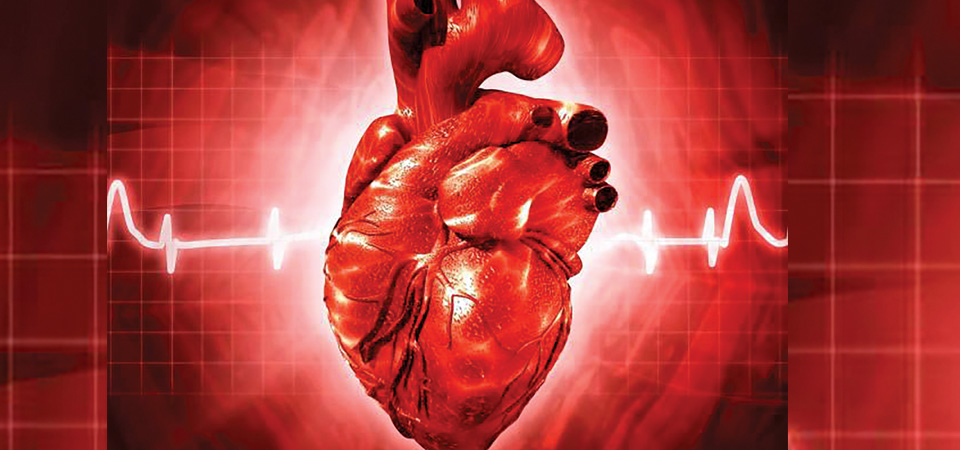Heart disease may strike anytime: Doctors

By A Staff Reporter
Kathmandu, Sept. 30: Many people have misconceptions that heart disease affects only those aged over 50 years, but according to doctors, the disease can strike anyone anytime, including during childhood or early twenties.
According to doctors, heart is one of the most important organs that supply nutrients and oxygen to body cells and help to eliminate waste. Human existence is directly linked with a healthy heart. Therefore, any sign of heart ailment should be taken seriously, say doctors.
According to Senior Cardiologist Dr. Prakash Raj Regmi, unhealthy food and sedentary lifestyle, heavy smoking are among the main causes behind increasing cases of Cardiovascular Disease (CVD).
CVDs are disorders of the heart and blood vessels that include coronary heart disease, cerebrovascular disease, rheumatic heart disease and other heart ailments including heart attacks or strokes.
According to the World Health Organisation (WHO), more than four out of five CVD deaths are due to strokes and heart attacks, and one third of these deaths occur prematurely in people under 70 years of age.
CVD remains the world’s No. 1 killer with 18.6 million deaths a year. Around 30,000 people lose their life in Nepal every year to CVD.
According to Dr. Regmi, 35 per cent of people aged above 18 years have high blood pressure, and 25 per cent of them have cholesterol problem. Around 15 per cent of the school-going children from five to 15 years of age have rheumatic heart disease. According to the WHO, 25 per cent of population of Nepal is affected by some type of heart disease. Similarly, 90 per cent of them are at risk of CVD.
The government is giving priority to treatment of CVDs rather than its prevention, said Dr. Regmi and added that the government must formulate strong policies towards prevention of the disease.
The government is providing free heart surgery to children below 15 years of age and elderlies above 75 years. Similarly, the government also provides free treatment to children suffering from rheumatic heart disease. The Ministry of Health and Population also provides Rs. 100,000 to each heart patient.
According to Senior Cardiologist Dr. Shivaji Silwal, a heart attack or stroke may be the first sign of CVD.
According to Dr. Silwal, the common symptoms of heart attack include pain or discomfort in the centre of the chest, pain or discomfort in the arms, the left shoulder, elbows, jaw, or the back.
Also, the person may experience difficulty in breathing or suffer shortness of breath, nausea or vomiting, light-headedness or faintness, a cold sweat, turning pale, or going unconsciousness, difficulty in walking, loss of balance and numbness of the face.
The most common symptom of a stroke is sudden weakness of the face, arm, or leg, most often on one side of the body, he added.
Dr. Silwal suggested seeking medical help immediately if any one suspects the sign of heart attack.
The signs of a heart disease should be taken seriously and prompt medical attention sought, he added, urging people to take their cardiovascular health seriously.
According to doctors, the risk factors for CVD include habits like tobacco use, an unhealthy diet, alcohol abuse and inadequate physical activity.
The physiological factors, including high blood pressure (hypertension), high blood cholesterol and high blood sugar or glucose are also major causes of CVD.
Recent News

Do not make expressions casting dout on election: EC
14 Apr, 2022
CM Bhatta says may New Year 2079 BS inspire positive thinking
14 Apr, 2022
Three new cases, 44 recoveries in 24 hours
14 Apr, 2022
689 climbers of 84 teams so far acquire permits for climbing various peaks this spring season
14 Apr, 2022
How the rising cost of living crisis is impacting Nepal
14 Apr, 2022
US military confirms an interstellar meteor collided with Earth
14 Apr, 2022
Valneva Covid vaccine approved for use in UK
14 Apr, 2022
Chair Prachanda highlights need of unity among Maoist, Communist forces
14 Apr, 2022
Ranbir Kapoor and Alia Bhatt: Bollywood toasts star couple on wedding
14 Apr, 2022
President Bhandari confers decorations (Photo Feature)
14 Apr, 2022










